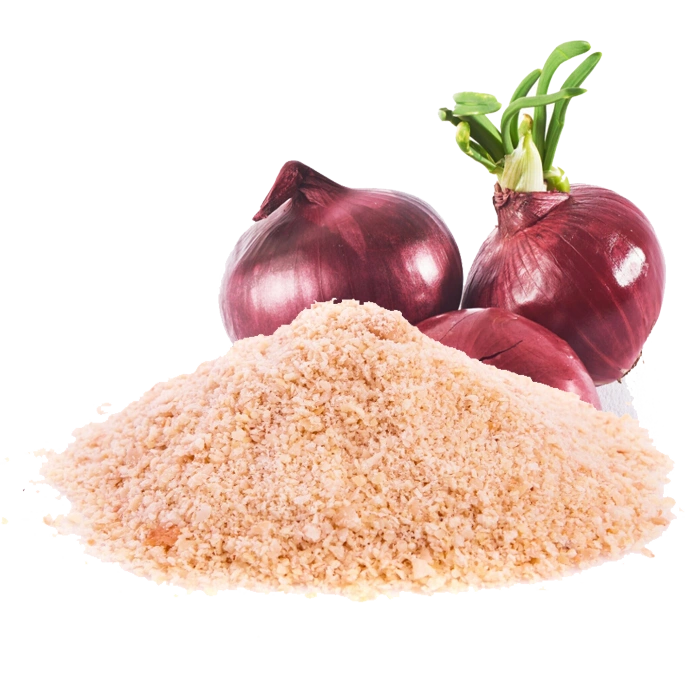Nutritional properties of Onion Powder
Energy :
None Kcal / 100g
Category : Spices & Sauces
Group : Basic Spices & Condiments
Composition And Nutritional Value :Onion powder is made by dehydrating and grinding onions into a fine powder. It retains many of the nutrients found in fresh onions but in a more concentrated form. While typically used in small amounts, onion powder is a good source of essential vitamins and minerals. It contains small amounts of vitamin C, vitamin B6, folate, calcium, potassium, and magnesium. Onion powder is rich in sulfur compounds like allicin, which are believed to contribute to its health benefits. It also contains antioxidants, particularly flavonoids such as quercetin, which can help neutralize free radicals in the body.
Health Benefits :
Immune System Support: The vitamin C in onion powder plays an essential role in strengthening the immune system, promoting healthy skin, and aiding in wound healing.
Anti-inflammatory: Onion powder contains compounds such as quercetin and sulfur compounds that have anti-inflammatory properties, which may help reduce the risk of chronic inflammation-related conditions like arthritis.
Heart Health: The antioxidants in onion powder, particularly quercetin, may help reduce the risk of heart disease by improving cholesterol levels, lowering blood pressure, and reducing inflammation in the cardiovascular system.
Digestive Health: Onion powder contains fiber, which can help support healthy digestion, regulate bowel movements, and promote gut health.
Cancer Protection: Some studies suggest that onion powder's sulfur compounds, particularly diallyl disulfide, may have anticancer properties, as they help reduce the risk of certain types of cancer by detoxifying the body and fighting free radicals.
Culinary Uses : Onion powder is a versatile ingredient commonly used as a seasoning or flavor enhancer in a wide range of dishes. It can be added to soups, stews, sauces, marinades, and dressings to provide an onion-like flavor without the texture of fresh onions. It is often used in spice blends such as garlic powder, curry powder, and seasoning mixes for meats, vegetables, and potatoes. Onion powder is also a key ingredient in many processed foods, including snacks, dips, and seasoning packets. It is particularly useful in dry rubs for grilling and in baked goods like bread and crackers.

